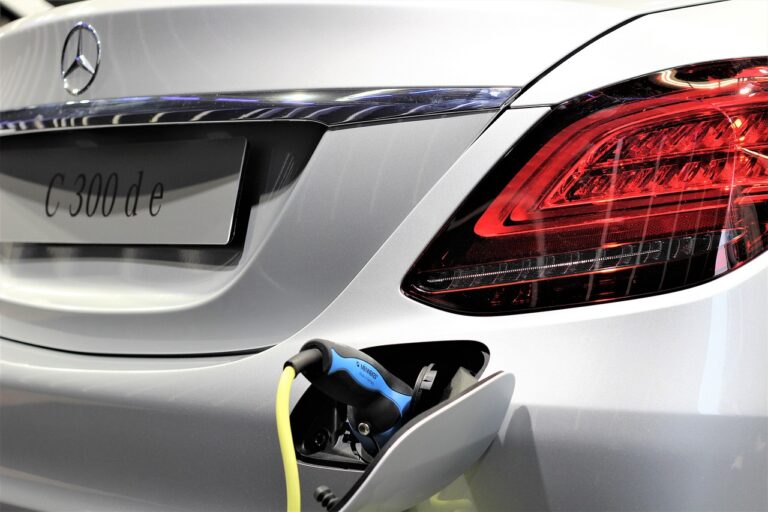Exploring the Role of Machine Learning in Predicting Automotive Market Demand: Bet bhai login, Radheexch, Lotus365
bet bhai login, radheexch, lotus365: In today’s fast-paced automotive industry, predicting market demand plays a crucial role in strategic decision-making for manufacturers and distributors alike. Understanding consumer preferences, trends, and behaviors can help businesses optimize their production, distribution, and marketing efforts to stay ahead of the competition. Machine learning, a subset of artificial intelligence, has emerged as a powerful tool in predicting automotive market demand accurately and effectively.
What is Machine Learning?
Machine learning is a branch of artificial intelligence that involves the development of algorithms and models that enable computers to learn from and make predictions or decisions based on data without being explicitly programmed. In the context of the automotive industry, machine learning algorithms can analyze vast amounts of historical data, such as sales figures, customer demographics, economic indicators, and market trends, to identify patterns and correlations that can be used to forecast future demand accurately.
The Role of Machine Learning in Predicting Automotive Market Demand
Machine learning algorithms can help automotive manufacturers and distributors predict market demand by analyzing a wide range of variables and factors that influence consumer behavior. By analyzing historical sales data, market trends, economic indicators, and even social media sentiment, machine learning models can identify patterns and correlations that can be used to forecast future demand accurately.
One of the key advantages of machine learning in predicting automotive market demand is its ability to process and analyze large volumes of data quickly and efficiently. Traditional forecasting methods often rely on manual data analysis and statistical models, which can be time-consuming and prone to human error. Machine learning algorithms, on the other hand, can automate the process of data analysis and prediction, allowing businesses to make faster and more informed decisions.
Moreover, machine learning models can adapt and improve over time as they are fed more data, allowing for continuous refinement and optimization of market demand forecasts. By incorporating real-time data and feedback into their algorithms, businesses can ensure that their predictions are always up-to-date and reflective of the latest market trends and consumer preferences.
Challenges and Considerations
While machine learning offers significant benefits in predicting automotive market demand, there are also challenges and considerations that businesses need to keep in mind. For example, the quality and quantity of data used to train machine learning models can significantly impact the accuracy of their predictions. Businesses need to ensure that they have access to high-quality, relevant data to achieve reliable forecasting results.
Additionally, businesses need to carefully consider the selection of machine learning algorithms and techniques to use for predicting market demand. Different algorithms have different strengths and weaknesses, and the choice of algorithm can affect the accuracy and performance of the forecasting model. It’s essential to work with data scientists or machine learning experts to select the most appropriate algorithms for the specific forecasting task at hand.
Furthermore, businesses need to continually monitor and evaluate the performance of their machine learning models to ensure that they are providing accurate and reliable predictions. Regular validation and testing of the models against actual market data can help identify any discrepancies or issues that need to be addressed to improve forecasting accuracy.
In conclusion, machine learning has emerged as a valuable tool in predicting automotive market demand accurately and effectively. By leveraging the power of machine learning algorithms to analyze vast amounts of data and identify patterns and correlations, businesses can make informed decisions and stay ahead of the competition in today’s dynamic automotive industry.
FAQs
1. What is the difference between machine learning and artificial intelligence?
Machine learning is a subset of artificial intelligence that involves the development of algorithms and models that enable computers to learn from and make predictions or decisions based on data without being explicitly programmed. Artificial intelligence, on the other hand, encompasses a broader range of technologies and techniques that enable computers to perform tasks that typically require human intelligence, such as speech recognition, natural language processing, and image recognition.
2. How can businesses benefit from using machine learning to predict automotive market demand?
By leveraging machine learning algorithms to analyze historical sales data, market trends, economic indicators, and consumer behavior, businesses can forecast future market demand accurately and effectively. This can help businesses optimize their production, distribution, and marketing efforts, reduce inventory costs, and improve customer satisfaction.
3. What are some common challenges in using machine learning to predict automotive market demand?
Some common challenges include the quality and quantity of data used to train machine learning models, the selection of appropriate algorithms and techniques, and the need for ongoing monitoring and evaluation of the models. Businesses need to address these challenges to ensure that their forecasting results are accurate and reliable.







